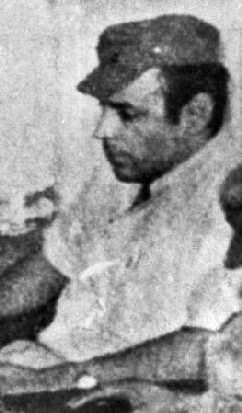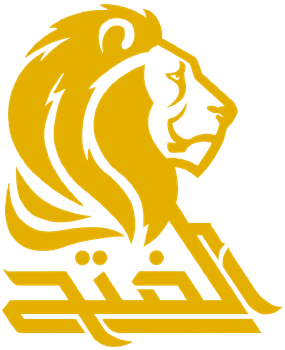Related Research Articles

The Abu Nidal Organization, officially Fatah – Revolutionary Council, was a Palestinian militant group founded by Abu Nidal in 1974. It broke away from Fatah, a faction within the Palestine Liberation Organization, following the emergence of a rift between Abu Nidal and Yasser Arafat. The ANO was designated as a terrorist organization by Israel, the United States, the United Kingdom, Canada, the European Union and Japan. However, a number of Arab countries supported the group's activities; it was backed by Iraq from 1974 to 1983, by Syria from 1983 to 1987, and by Libya from 1987 to 1997. It briefly cooperated with Egypt from 1997 to 1998, but ultimately returned to Iraq in December 1998, where it continued to have the state's backing until Abu Nidal's death in August 2002.

Fatah, formally the Palestinian National Liberation Movement, is a Palestinian nationalist and social democratic political party. It is the largest faction of the confederated multi-party Palestine Liberation Organization (PLO) and the second-largest party in the Palestinian Legislative Council (PLC). Mahmoud Abbas, the President of the Palestinian Authority, is the chairman of Fatah.

Yasser Arafat, also popularly known by his kunya Abu Ammar, was a Palestinian political leader. He was chairman of the Palestine Liberation Organization (PLO) from 1969 to 2004 and president of the Palestinian National Authority (PNA) from 1994 to 2004. Ideologically an Arab nationalist and a socialist, Arafat was a founding member of the Fatah political party, which he led from 1959 until 2004.

Sabri Khalil al-Banna, known by his nom de guerreAbu Nidal, was a Palestinian militant. He was the founder of Fatah: The Revolutionary Council, a militant Palestinian splinter group more commonly known as the Abu Nidal Organization (ANO). Abu Nidal formed the ANO in October 1974 after a split from Yasser Arafat's Fatah faction within the Palestine Liberation Organization (PLO).

The Lebanese Civil War was a multifaceted armed conflict that took place from 1975 to 1990. It resulted in an estimated 150,000 fatalities and led to the exodus of almost one million people from Lebanon.

Black September, also known as the Jordanian Civil War, was an armed conflict between Jordan, led by King Hussein, and the Palestine Liberation Organization (PLO), led by chairman Yasser Arafat. The main phase of the fighting took place between 16 and 27 September 1970, though certain aspects of the conflict continued until 17 July 1971.

The Kingdom of Kurdistan was a short-lived Kurdish state proclaimed in the city of Sulaymaniyah following the collapse of the Ottoman Empire. It lasted from September 1921 until July 1925. Officially, the territory involved was under the jurisdiction of the British Mandate of Mesopotamia.

The Damour massacre took place on 20 January 1976, during the 1975–1990 Lebanese Civil War. Damour, a Maronite Christian town on the main highway south of Beirut, was attacked by left-wing militants of the Palestine Liberation Organisation and as-Sa'iqa. Many of its people died in battle or in the massacre that followed, and the others were forced to flee. According to Robert Fisk, the town was the first to be subject to ethnic cleansing in the Lebanese Civil War. The massacre was in retaliation to the Karantina massacre by the Phalangists.
The Rejectionist Front or Front of the Palestinian Forces Rejecting Solutions of Surrender was a political coalition formed in 1974 by radical Palestinian factions who rejected the Ten Point Program adopted by the Palestine Liberation Organization (PLO) in its 12th Palestinian National Congress (PNC) session.

Sheikh Fahad Al-Ahmed Al-Jaber Al-Sabah was a member of the Kuwaiti ruling family, a military officer, and sports administrator. He was the founder of the Asian Handball Federation and Kuwait Olympic Committee. Fahad was killed by the Iraqi military on the first day of the Iraqi invasion of Kuwait.

Ismail Fatah Al-Turk was an Iraqi painter and sculptor born in Basra, Iraq, noted for his abstract art, monumental sculpture, and public works and as part of the Baghdad Modern Art Group, which fostered a sense of national identity. His monument, al-Shaheed Monument is the most iconic public monument in Baghdad.

Al-Shaheed Monument, also known as the Martyr's Memorial, is a monument designed by Iraqi sculptor Ismail Fatah al-Turk and situated in the Iraqi capital, Baghdad. It was originally dedicated to the Iraqi soldiers killed in the Iran–Iraq War and has since grown to become generally considered to be a commemoration of all Iraqi martyrs.

Fatah al-Islam is a Sunni Islamist militant group established in November 2006 in a Palestinian refugee camp, located in Lebanon. It has been described as a militant jihadist movement that draws inspiration from al-Qaeda. It became well known in 2007 after engaging in combat against the Lebanese Army in the Nahr al-Bared UNRWA Palestinian refugee camp. Following its defeat at Nahr el-Bared, the group relocated to the Ain al-Hilweh refugee camp near Sidon in 2008. As of 2014, after the death or capture of many members, most of the surviving members of Fatah al-Islam are thought to have joined other groups in Lebanon and Syria including the Free Syrian Army, Al-Nusra Front, Ahrar al-Sham, and the Islamic State of Iraq and the Levant.

Ahmad Jassim Mohammed is an Iraqi football goalkeeper who played for Iraq in the 1986 FIFA World Cup. He also played for Al-Rasheed Club.

Abdul-Fatah Nsaief Jassim is an Iraqi football goalkeeper who played for Iraq in the 1986 FIFA World Cup. He also played for Al-Jaish.

Ahmed Barzani revolt refers to the first of the major Barzani revolts and the third Kurdish nationalistic insurrection in modern Iraq. The revolt began in 1931, after Ahmed Barzani, one of the most prominent Kurdish leaders in southern Kurdistan, succeeded in unifying a number of other Kurdish tribes. The ambitious Kurdish leader enlisted a number of Kurdish leaders into the revolt, including his young brother Mustafa Barzani, who became one of the most notorious commanders during this revolt. The Barzani forces were eventually overpowered by the Iraqi Army with British support, forcing the leaders of Barzan to go underground.

The Fatah Alliance, also sometimes translated as the Conquest Alliance, is a political coalition in Iraq formed to contest the 2018 general election. The main components are groups involved in the Popular Mobilization Forces which is mainly a state-sponsored umbrella organization made up of Iraqi Shiite Muslims who fought from 2014 to 2017 alongside the Iraqi Army to defeat ISIL. It is led by Hadi Al-Amiri, the leader of the Badr Organization.
Al-Fatah Sport Club, is an Iraqi football team based in Al-Rusafa, Baghdad.